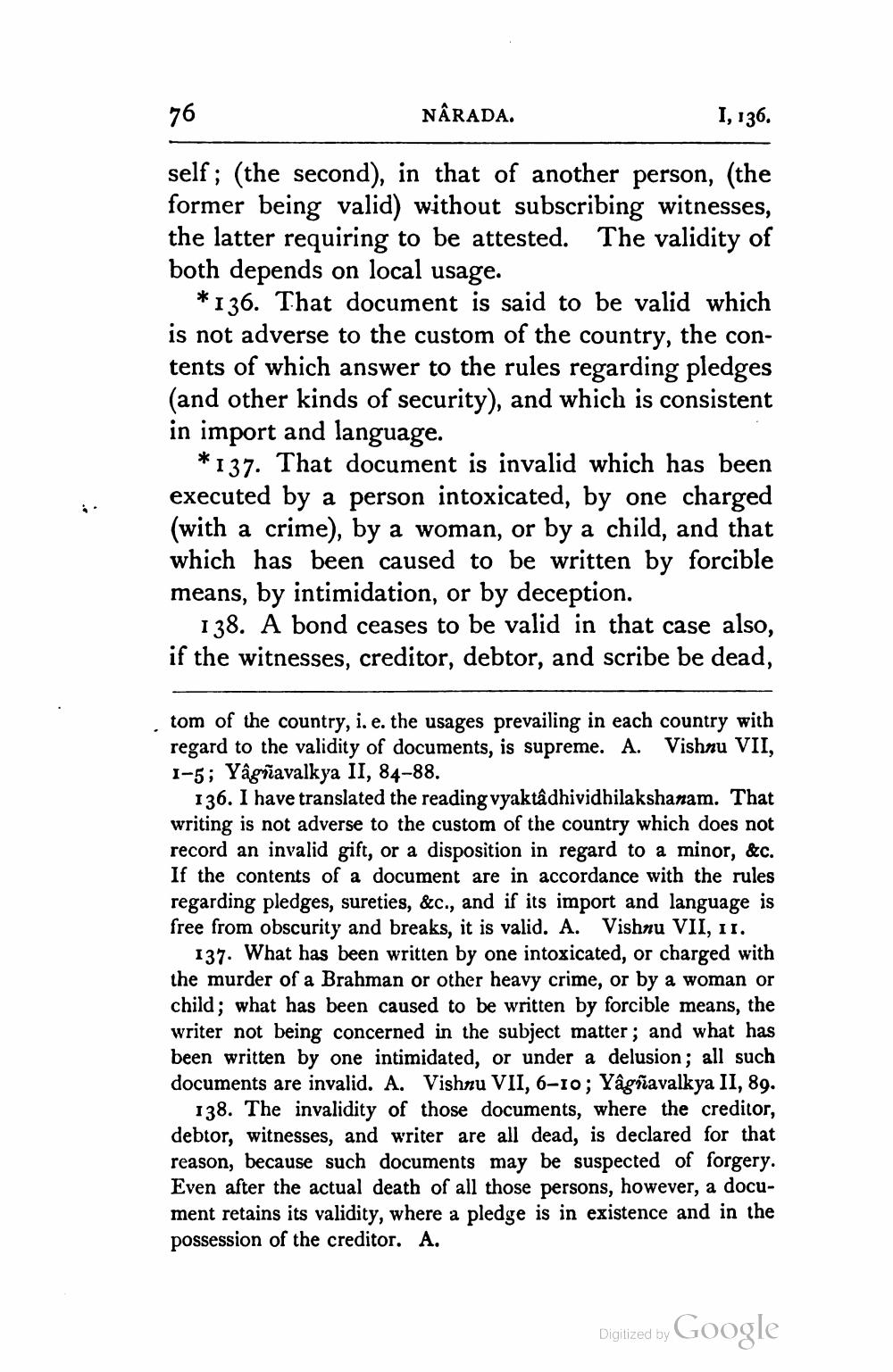________________
76
NÂRADA.
1, 136.
self ; (the second), in that of another person, (the former being valid) without subscribing witnesses, the latter requiring to be attested. The validity of both depends on local usage.
*136. That document is said to be valid which is not adverse to the custom of the country, the contents of which answer to the rules regarding pledges (and other kinds of security), and which is consistent in import and language.
*137. That document is invalid which has been executed by a person intoxicated, by one charged (with a crime), by a woman, or by a child, and that which has been caused to be written by forcible means, by intimidation, or by deception.
138. A bond ceases to be valid in that case also, if the witnesses, creditor, debtor, and scribe be dead,
tom of the country, i. e. the usages prevailing in each country with regard to the validity of documents, is supreme. A. Vishnu VII, 1-5; Yagñavalkya II, 84-88.
136. I have translated the reading vyaktadhividhilakshanam. That writing is not adverse to the custom of the country which does not record an invalid gift, or a disposition in regard to a minor, &c. If the contents of a document are in accordance with the rules regarding pledges, sureties, &c., and if its import and language is free from obscurity and breaks, it is valid. A. Vishnu VII, 11.
137. What has been written by one intoxicated, or charged with the murder of a Brahman or other heavy crime, or by a woman or child; what has been caused to be written by forcible means, the writer not being concerned in the subject matter; and what has been written by one intimidated, or under a delusion; all such documents are invalid. A. Vishnu VII, 6-10; Yâgñavalkya II, 89.
138. The invalidity of those documents, where the creditor, debtor, witnesses, and writer are all dead, is declared for that reason, because such documents may be suspected of forgery. Even after the actual death of all those persons, however, a document retains its validity, where a pledge is in existence and in the possession of the creditor. A.
Digitized by Google




